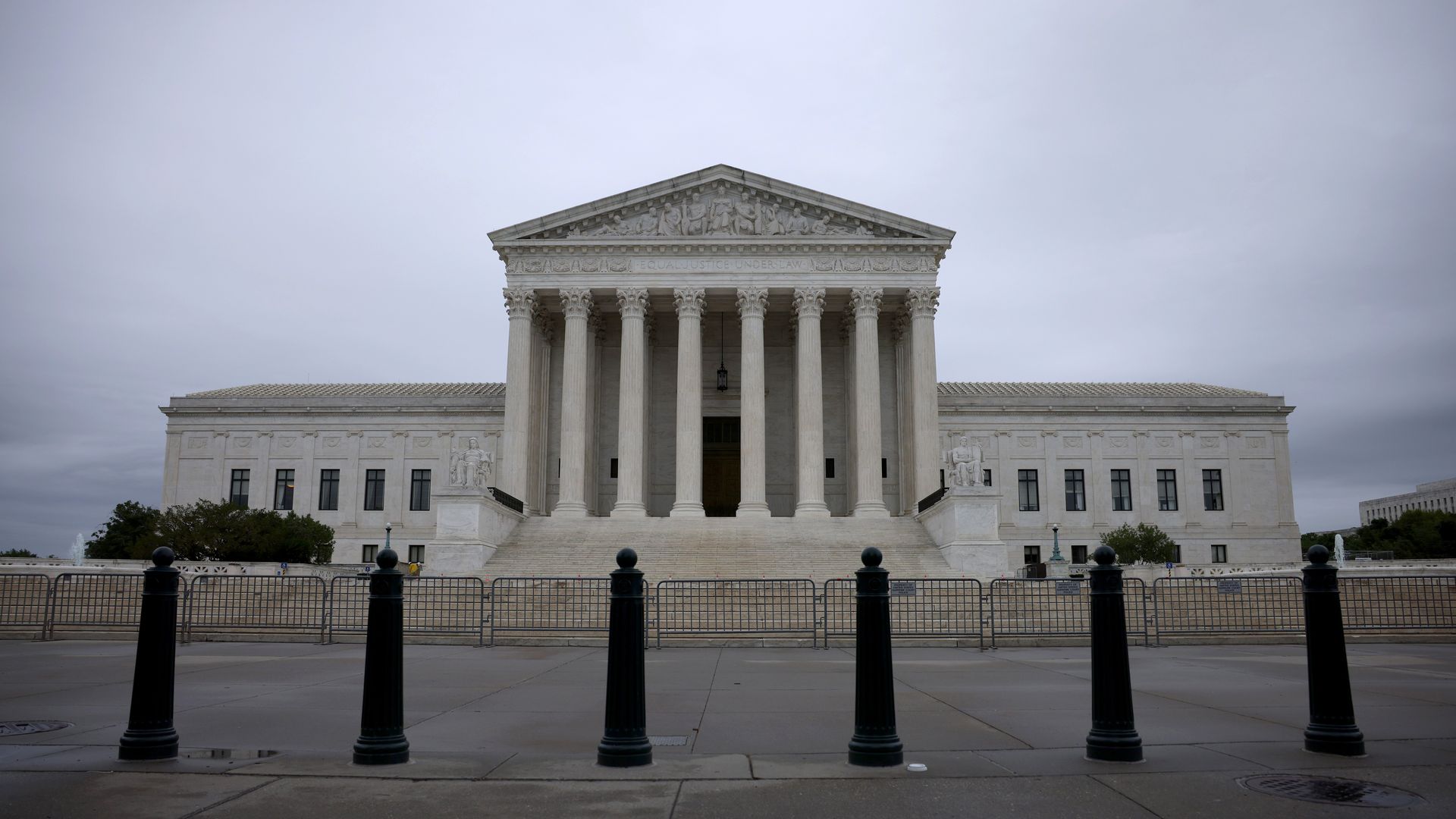Supreme Court upholds GOP voting restrictions in Arizona
Add Axios as your preferred source to
see more of our stories on Google.

Photo: Anna Moneymaker/Getty Images
The Supreme Court today upheld a pair of voting restrictions in Arizona, likely paving the way for new limitations across the country.
Why it matters: It's the court’s biggest voting rights decision in several years. Conservatives’ victory in the 6-3 ruling, authored by Supreme Court Justice Samuel Alito, is a sign of what’s to come.
Details: The case concerned two voting restrictions in Arizona. The state invalidates ballots that are cast in the wrong precinct, and it also bans the practice known as “ballot harvesting,” in which third parties collect and return other people’s ballots.
- Democrats argued those rules end up disproportionately affecting voters of color, and that they, therefore, violate the Voting Rights Act. “Ballot harvesting,” for example, is particularly useful to the state’s Native population, Democrats said, because polling places can be far away and mail service isn’t always reliable.
In a 6-3 ruling, the court said neither of Arizona's rules amounts to racial discrimination.
Context: The stakes in this case were high because it implicates what’s left of the Voting Rights Act.
- The Supreme Court in 2013 effectively invalidated the "preclearance" provision of the Voting Rights Act, which required states and local governments to clear voting rule changes with the federal government if they had a history of discrimination.
- All that’s left now is to challenge new rules after they take effect under a different provision of the law.
- In today’s case, Democrats and voting-rights advocates feared that upholding Arizona’s specific restrictions would also close the door — or begin closing the door — to many other after-the-fact challenges.
The big picture: As long as state legislatures don’t cross the line into overt racial discrimination, they will get wide latitude from the courts to change the rules that govern their elections.
- The court has already invalidated the heart of the Voting Rights Act. And it ruled in 2019 that federal courts can’t even consider any limits on partisan gerrymandering — another tool that state-level majorities use to preserve their power.
- Today's decision is another step in the same direction.
